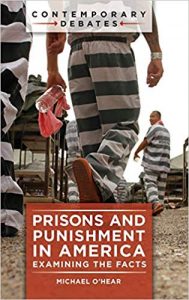The Great Lakes Compact At 10: Significant Achievements, But Still A Work In Progress
Enacting the Great Lakes Compact was a remarkable achievement that likely wouldn’t be possible in today’s political climate; it is a bipartisan, multi-jurisdictional agreement that will benefit future generations and was adopted in the absence of a crisis. Yet its ultimate success or failure remains  to be determined, as questions persist about its staying power and about our commitment to its consistent application. Those two conclusions were broadly shared by presenters and attendees at a conference held earlier this month at the Law School’s Lubar Center. The Law School’s Water Law and Policy Initiative organized the event to commemorate the tenth anniversary of the Compact’s signature into law by President George W. Bush, and to evaluate its success since then.
to be determined, as questions persist about its staying power and about our commitment to its consistent application. Those two conclusions were broadly shared by presenters and attendees at a conference held earlier this month at the Law School’s Lubar Center. The Law School’s Water Law and Policy Initiative organized the event to commemorate the tenth anniversary of the Compact’s signature into law by President George W. Bush, and to evaluate its success since then.
Former Wisconsin governor Jim Doyle opened the conference by reflecting on his work as one of the Compact’s architects. Doyle acknowledged the Compact’s primary feature, a general ban on diversions of water outside the basin, and also highlighted lesser known provisions resulting in the creation of a framework for employing sound science in the joint management of the Lakes. He struck a note of caution, however, predicting that thirsty regions across the country are still focused on the Great Lakes as a potential water source, and at some point “people will go to Congress and say we have to get rid of [the Compact].” The Compact will not be fully tested, Doyle suggested, until water shortages strike broad swaths of the country, including areas outside the Great Lakes basin but within the Great Lakes states. The basin line bisects Wisconsin. Would a future Wisconsin governor remain committed to the Compact even if severe water shortages struck Madison or other Wisconsin communities just outside the Basin? Doyle urged audience members to ask all candidates for public office about their commitment to the Lakes and the Compact.

